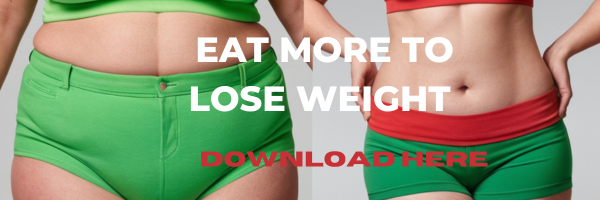The human body is composed of nearly 60% water? While everyone is familiar with the idea of hydration, those following a low-carb diet, particularly the ketogenic diet, often overlook the critical link between their dietary changes and the need for increased water intake. The ketogenic diet, characterized by its low levels of carbohydrates and high levels of fats, can trigger significant changes in metabolism that may lead to increased fluid loss. This transformation can result in dehydration if one isn’t mindful of their hydration habits, highlighting the essential role water plays in supporting overall health and metabolic efficiency on a keto regimen.
Historically, low-carb diets have gained popularity since the early 1970s, starting with the Atkins Diet, which placed an emphasis on reducing carbohydrate intake to promote weight loss. As more individuals have explored various low-carb approaches, the ketogenic diet has emerged as a powerful tool for not just weight management but also for managing certain health conditions like epilepsy and type 2 diabetes. However, the rise in interest surrounding this diet has also illuminated the often-neglected aspect of hydration. Many individuals venturing into the keto lifestyle may experience what is colloquially known as the “keto flu,” characterized by symptoms such as fatigue, headache, and irritability, largely due to water and electrolyte imbalances.
Imagine you’re embarking on your keto journey, excited about the prospect of shedding extra pounds and gaining mental clarity. You meticulously plan your meals and obsess over counting macros, yet you overlook a crucial detail: your water intake. Just like a well-tuned car needs the right amount of fuel, your body requires adequate hydration to function optimally, especially when shifting into ketosis. Inadequate hydration can hinder your progress and lead to discomfort, but keeping a close eye on your fluid intake can foster a smoother transition into this transformative lifestyle.
Understanding your hydration needs on a low-carb diet isn’t just a suggestion; it’s a necessity. As you continue to adapt to a ketogenic lifestyle, maintaining a balance of electrolytes and staying hydrated becomes vital. The connection between hydration and effective fat burning is more profound than one may realize, as proper water intake aids in the metabolism of fats. As you delve deeper into the nuances of keto hydration, you’ll uncover actionable strategies to stay hydrated and leverage the benefits of your dietary choices.
How Much Water Should You Drink on a Low-Carb Keto Diet?
Are you struggling to determine your hydration needs while following a low-carb keto diet? Staying properly hydrated is crucial for maintaining optimal health and performance, especially when reducing your carbohydrate intake. Understanding the specific water requirements on a keto diet can enhance your energy levels, boost digestion, and support overall well-being. Dive into this insightful guide to discover the ideal hydration strategies tailored for your low-carb lifestyle and unlock the full potential of your keto journey!
Understanding Your Hydration Needs on a Keto Diet
When transitioning to a low-carb diet, one of the foremost questions many individuals have is: how much water to drink on keto diet? Dehydration can become a serious concern due to the diuretic effect of the initial stages of ketosis. Typically, to encourage optimal hydration, it’s important to consume sufficient water throughout the day, especially as your body adapts to burning fat for fuel.
Factors Affecting Hydration Needs
How much water you need depends on various individual factors, including:
- Body Weight: Generally, a good rule of thumb is to drink half your body weight in ounces. For example, if you weigh 180 pounds, aim for about 90 ounces of water daily.
- Activity Level: If you engage in regular exercise, increase your water intake to replace fluids lost through sweat.
- Climate: Warmer climates necessitate greater hydration. Hot temperatures can lead to quicker dehydration, particularly on a low-carb diet.
- Overall Health: Health conditions, such as kidney issues or diabetes, may require different hydration strategies. Consulting a healthcare provider is crucial.
Monitoring Hydration While on Keto
50% of your body weight in ounces is a baseline, but you may need to adjust based on how your body responds to the keto diet. Signs of dehydration can include:
- Dark yellow urine
- Dry mouth or throat
- Dizziness
- Fatigue
It’s key to listen to your body; if you feel thirsty, drink more water. Additionally, consider tracking your daily water intake using apps or hydration logs, which can also help ensure you’re meeting your hydration goals.
The Role of Electrolytes on a Keto Diet
Another crucial aspect of hydration on a keto diet is the balance of electrolytes, such as sodium, potassium, and magnesium, which can become depleted as the body enters ketosis. On a low-carb diet, as glycogen stores deplete, the body releases water, leading to potential electrolyte imbalances. Here’s a breakdown of how to maintain these vital minerals:
- Sodium: Consider adding salt to your meals, particularly if you experience symptoms of the “keto flu,” which can include headache and fatigue.
- Potassium: Incorporate potassium-rich foods like avocados and leafy greens to help regulate fluid balance.
- Magnesium: Foods such as nuts, seeds, and dark chocolate are great sources of magnesium, essential for muscle function and preventing cramps.
Practical Tips for Staying Hydrated
Here are some practical hydration tips while following a keto diet:
- Carry a reusable water bottle: Keeping a bottle handy can encourage consistent sips throughout the day.
- Infuse your water: Adding slices of lemon, cucumber, or mint sprigs can make drinking water more appealing.
- Set reminders: Use an app or set alarms on your phone to remind you to drink water at regular intervals.
Hydration Calculator
For those looking to personalize their hydration needs, consider this simple calculation:
Daily Water Intake (in ounces) = Body Weight (in pounds) / 2
For an interactive experience, use the water intake calculator below:
Your daily water intake: ounces
Best Drinks for Keto Hydration
While water is essential, incorporating other hydrating beverages can be beneficial. Here’s a comparison of some popular options:
| Drink | Calories | Net Carbs (per serving) | Benefits |
|---|---|---|---|
| Plain Water | 0 | 0 | Hydrates without adding calories or carbs |
| Herbal Tea | 0-5 | 0 | Antioxidant-rich and can be soothing |
| Bone Broth | 30-50 | 0 | Rich in electrolytes and good for gut health |
| Coconut Water | 45 | 9 | Natural source of electrolytes but higher in carbs |
Drinking an adequate amount of fluids and monitoring electrolyte levels on a keto diet significantly influences your overall well-being. Understanding how much water to drink on keto diet is essential to thrive in your low-carb journey and can enhance energy levels, mood, and physical performance.
It’s fascinating to note that, according to research, staying adequately hydrated can boost metabolic rates, potentially aiding weight loss efforts while on the keto diet.
What is the recommended daily water intake on a low-carb diet?
The recommended daily water intake can vary based on several factors, including your body weight, activity level, and climate. However, a common guideline suggests:
- At least 8-10 cups (64-80 ounces) of water per day.
- Increased intake if you are very active or live in a hot climate.
Why is hydration particularly important on a keto diet?
On a keto diet, your body stores less glycogen, which leads to decreased water retention. This results in quicker dehydration. Therefore, staying hydrated is crucial for:
- Maintaining energy levels.
- Preventing the symptoms of the “keto flu.”
- Supporting kidney function and avoiding kidney stones.
How can I tell if I’m drinking enough water?
There are a few signs that can indicate whether you’re properly hydrated:
- Urine color: Light yellow to clear indicates good hydration.
- Thirst: Frequent thirst can be a sign you need more water.
- Physical symptoms: Headaches, fatigue, and dizziness may indicate dehydration.
Can I drink other beverages instead of water?
While water is the best choice for hydration, you can include other low-carb beverages such as:
- Herbal teas.
- Bone broth.
- Electrolyte-infused drinks (sugar-free).
Just be cautious of added sugars and carbohydrates in flavored drinks.
What are the signs of dehydration on a keto diet?
Signs of dehydration can manifest as:
- Thirst and dry mouth.
- Dizziness or light-headedness.
- Fatigue or lack of energy.
- Headaches.
- Dark yellow urine.
If you experience any of these symptoms, increase your water intake immediately.
Conclusion
Staying properly hydrated on a ketogenic diet is crucial due to the body’s increased fluid loss during the initial phases of carbohydrate restriction. One of the key insights is that individuals on a keto diet often experience a diuretic effect because of reduced insulin levels, leading to the excretion of excess water and electrolytes. This makes it essential to not only drink adequate water but also replenish electrolytes—such as sodium, potassium, and magnesium—to maintain balance and prevent symptoms like fatigue, headaches, and muscle cramps.
Experts recommend that individuals on a ketogenic diet aim to drink at least 2 to 3 liters of water daily, adjusting for activity level, climate, and individual needs. It is crucial to listen to your body and adjust water intake accordingly, especially when engaging in physical activity. Moreover, incorporating foods high in electrolytes or considering supplements can further support hydration. Overall, consistent hydration tailored to personal health and lifestyle is essential for optimizing the benefits of a low-carb diet while minimizing potential side effects.



